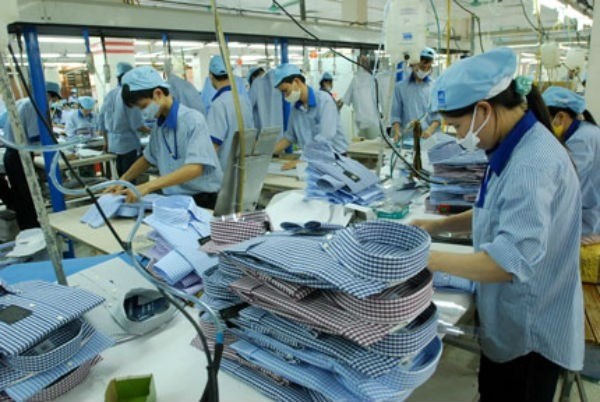Official: Faster equitisation needed
Speeding the equitisation of State-owned enterprises (SOEs) and development of the stock market is important to secure a Government policy to restructure businesses over the next five years.
 Illustrative image (Photo: taichinhplus.vn)
Illustrative image (Photo: taichinhplus.vn)Hanoi (VNA) - Speeding the equitisation of State-owned enterprises (SOEs) and development of the stock market is important to secure a Government policy to restructure businesses over the next five years, a finance official said.
Hoang Van Thu, Deputy Director of the Ministry of Finance’s Corporate Finance Department, told a conference held by the Hanoi Stock Exchange last week that the acceleration in equitisation was needed for the sake of enterprises and investors.
A report by the department said the nation has had 5,950 SOEs reorganised, with 4,460 of them equitised and the remaining firms restructured through mergers and acquisitions, dissolution, bankruptcy or conversion into limited companies with two members or more.
Forty-eight firms were equitised in the first 10 months of this year, after 591 companies were privatised during 2011-15. As many as 718 SOEs remain to be equitised.
The report said that in the five years until 2015, some 350 equitised companies showed better business performances, compared to the results they posted in pre-equitisation phases.
The combined charter capital of these firms increased 72 percent, and their total assets rose by 39 percent. Their combined pre-tax profits were up 49 percent, and joint contributions to the State budget were 27 percent higher.
The average workers’ income at these companies also increased 33 percent.
Also, the local press cited several cases where equitisation notably improved operational efficiency of businesses.
The Vietnam Dairy Products Joint Stock Company, or Vinamilk, has seen charter capital increase by 13 times from the 1.59 trillion VND (71.95 million USD) level recorded before it was equitised in December 2003.
Revenues of the company grew by more than 10 times, from 451.6 billion VND in 2003 to 40.2 trillion VND in 2015, and its after-tax profits increased from 56 billion VND in 2003 to 7.8 trillion VND last year, posting an average growth of 29 percent per year.
The Vietnam National Seed Joint Stock Company, also known as Vinaseed, posted revenues of 1.36 trillion VND last year, a rise of 20 times from the pre-equitisation figure recorded more than 10 years ago.
Its after-tax profits reached 157 billion VND in 2015, growing by 40 times; and asset values were up 22 times at 1.56 trillion VND, while equity was 40 times higher at more than VNĐ1 trillion.
The Vietnam National Petroleum Group, better known as Petrolimex, obtained more than 3 trillion VND in profits last year, compared to a loss of 1.67 trillion VND the company suffered before it was equitised in 2011. The firm also paid dividends at a rate of 12.14 percent in the first year of equitisation.
On the other hand, some equitised enterprises have reportedly shown declining performances.
The Vietnam Rubber Group saw profits fall from 11.84 trillion VND in 2011 to 2.2 trillion VND in 2015, while its debt amounted to 21.22 trillion VND, compared to an equity of 35.21 trillion VND last year.
In 2015, the average debt to equity ratio of SOEs was 1.23. However, 25 companies, including the Military Petroleum Corporation, the Vietnam Machinery Installation Corporation and construction firm Corporation No 36, had a ratio greater than 3.00.
Le Manh Ha, Vice Chairman of the Government Office and deputy head of the National Steering Committee for Corporate Renovation and Development, told news website Infonet that equitisation has, overall, benefited various subjects.
The State had more resources for socio-economic development, enterprises were better financed, and managed to improve production and business activities, and workers’ interests were more assured. Investors also saw more investment opportunities emerging in a manner closer to market rules.
Pham Hai An, another official from the Corporate Finance Department, said authorities must continue to complete policies and institutions needed to speed up equitisation.
Hundreds of companies, though equitised, have not yet listed shares on the stock market, as required. This makes SOE share auctions unattractive to investors and impedes transactions, he said.
On June 30, the Ministry of Finance issued Circular No 115/2-16/TT-BTC providing guidelines for initial public offerings and the use of money raised from SOE equitisations.
Last November, the Government issued Decree No 145/2016/NĐ-CP revising a former decree on treatment for administrative violations in the stock market, including violations of listings and transaction registering regulations.
A better legal framework is expected to boost the transparency of stock transactions and enable more stable and healthy operations of the market, said Pham Thi Thanh Huong, Deputy Chief Inspector of the State Securities Commission./.-VNA













